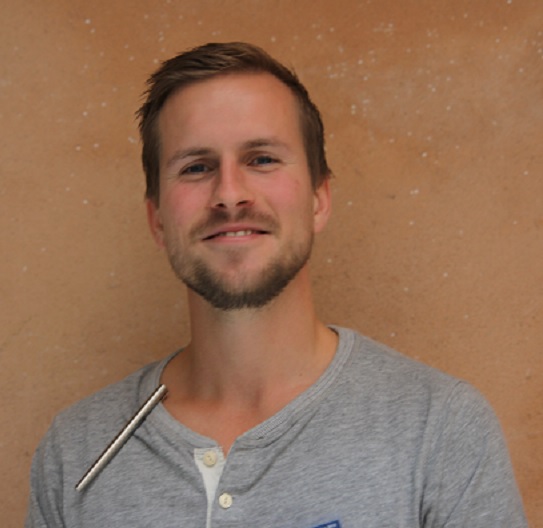Background and interest
I have a background in computational physics at the University of Oslo where I mainly studied molecular dynamics and percolation in nano-porous rocks. Flow in porous media is important for the understanding of transport of liquids and particles in dense materials. Since it is difficult to measure things going on the inside of porous materials, computer simulations are particularly useful and enlightening.
Currently, I'm studying for my PhD at London Imperial College, where I am focusing on calcium carbonate confinement at the nano-scale. Confinement at this level is very interesting and is important for the understanding of crystal growth as well as flow in the crystal confinement.
Description of research in NanoHeal: ESR 2
Project title: Molecular dynamics computer simulations of reactive surfaces under confinement
Objective: Understand how confinement influences the crystallization process.
Description: This project will identify microscopic mechanisms for crystallization under confinement and under pressure, quantify the force of crystallization arising from crystal growth and quantify solvent and ion dynamics under confinement. One main objective will be to investigate how confinement influences the crystallization process. The simulations will focus on carbonates confining ionic solutions. We will exploit molecular dynamics (MD) approaches developed already in the group which have proven effective in the investigation of crystallization of simple monoatomic systems. There is large scope to extend this approach to investigate the large and complex systems of NanoHeal, and in particular to expand the length scales required to study nucleation effects. This will be feasible by taking advantage of massively parallel computers. The project will link to the numerical computations in UIO and UCB groups and provide input on structural and dynamic variables for these partners, as well as relevant information for the interpretation of the SFA experiments performed by the UIO group.
Expected results: MD simulation results with new realistic potentials of large enough systems to compare to confined experiments and use as input to Kinetic MC simulations.
Planned secondment(s): UIO, M20, 4 weeks, multiscale modelling, DYN, M26, 2 weeks, private sector internship




